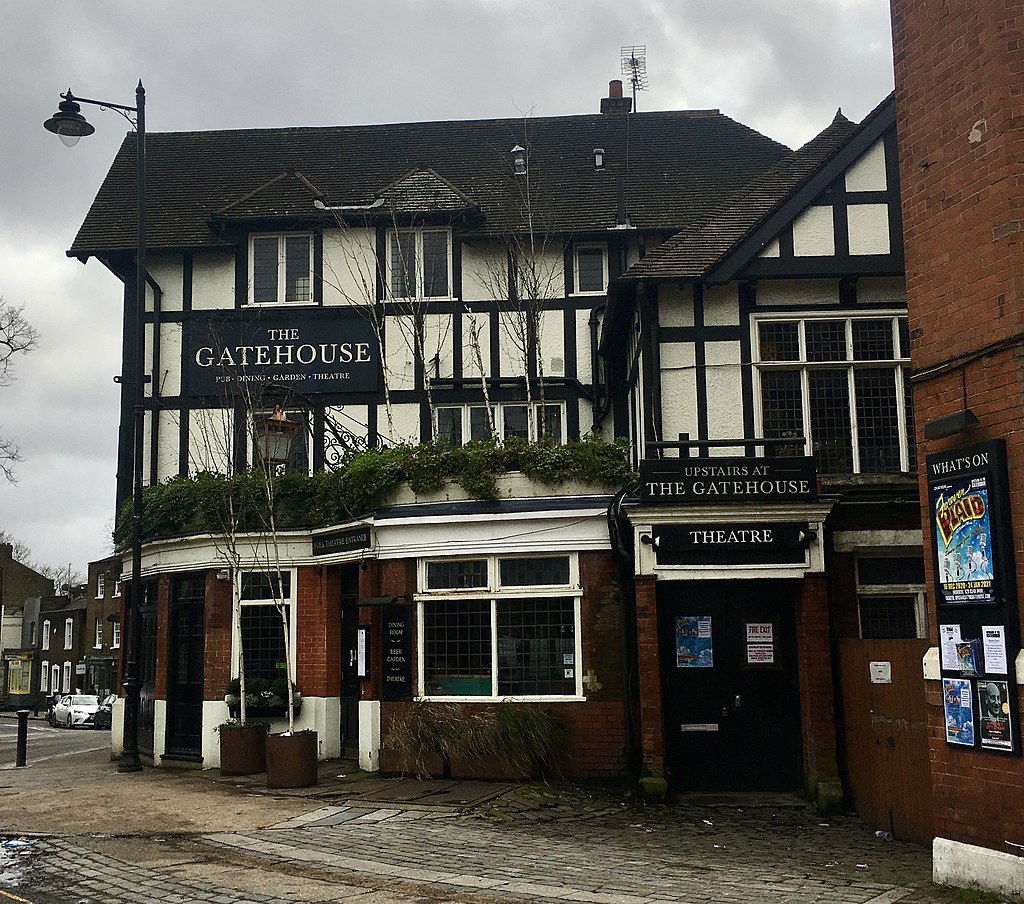Exploring some of the smaller spaces offered by pub theatres, Susan Elkin suggests you keep them in mind when looking for alternative live theatre school trips.
I seem to spend a lot of time in pubs. And no, it isn’t because I’m succumbing to football or alcohol dependency. It’s because there are so many flourishing pub theatres across London. Within just over a mile through central Islington, for example, there are no fewer than four: The Old Red Lion, The Kings Head, The Hope and The Hen and Chickens and I’ve seen worthwhile work in all of them. Across the whole metropolis there are dozens more.
But I rarely see school parties at pub theatres. Of course, you might need to get special permission to take a group of minors through the bar in an evening but that shouldn’t be an insurmountable barrier. The requirement for GCSE Drama and A Level is to see live theatre – and certainly for A level students the more varied and adventurous it is the better. And tickets – especially if they’ll do a group rate – are likely to be cheaper than in any larger theatre. Access by public transport is fairly straightforward in most cases too.
Much of the work I’ve seen in pub theatres is more experimental than anything I’ve seen at, say, the National or the Old Vic. It’s economy of scale of course – little venues have fewer tickets to sell so they can (sometimes) afford to take risks. On the other hand I’ve seen pantomime, G&S and Shakespeare in pub theatres and The Kings Head, Islington, now run by playwright Mark Ravenhill (Shopping and Fucking, The Boy in the Dress etc) is offering a production which reworks La Boheme at the time of writing. So it can be, relatively, mainstream too.
It came about because, traditionally, town pubs often had back, side or upstairs rooms which were hired out for meetings and events. Sometimes this was without charge because there was an assumption that participants would buy drinks. Gradually, as these became redundant some enterprising landlords and small theatre companies spotted the potential for mutual advantage. People coming to see shows would buy drinks and food. Pub goers might try the theatre since it is only a few feet away from where they enjoy a regular pint or meal with friends – a new audience, perhaps.
Take Above the Gatehouse in Highgate. By pub theatre standards it’s a big space – traverse stage and quite roomy with a little box office outside, an attractive room for punters to mingle in before or after the show or during the interval and all accessed by a grand-ish flight of stairs. This is because The Gatehouse is a rather splendid (good food too) 1930s roadhouse all built on a spacious scale. There’s been a hostelry on that site since 1337. Ovation theatre acquired the lease for “Upstairs” in 1997. I’ve seen shows such as Forever Plaid and 5 Guys Named Moe there – both fine productions and eminently suitable for school parties. Copperfield the Musical runs from 12 May to 05 June.
The Hope Theatre – above The Hope and Anchor pub in Upper Street – opened in 2013 and is a small (50 seater) black box space without any backstage facilities. You cross the bar and creep up a flight of stairs to an intimate space where I’ve seen much fine new work usually featuring just two or three actors. If. Destroyed. Still. True – for example – closes on 14 May but is an interesting piece from a new company called Jawbones, founded by playwright Jack Condon with his debut play. And the interesting thing about this sort of production – especially for any students that you take – is that you often see actors and creatives at the beginnings of careers who then go on to blossom. You couldn’t take a whole year group to The Hope but it would be a fine experience for, say, a group of half a dozen A level students who would, among other things, learn that once you’ve trained, the way to progress in the industry is to create your own work and get it on a small stage somewhere rather than waiting for the phone to ring with a job offer at National Theatre.
Most pub theatres run a programme which is a combination of in-house productions and hosted shows which are sometimes one nighters. For example I’ve seen Mark Farrelly (interviewed in Ink Pellet, Jan2022), who tours his shows all over the country, at Bridge House Theatre, Penge in Jarman and at Golden Goose Theatre, Camberwell and Jack Studio, Brockey in Howerd’s End.
The Jack Studio is another interesting one. As well as theatre productions it runs scratch nights, film screening and other arts activities and hires out its space for rehearsal. It is on the side of The Brockley Jack – now a very pleasant pub on a historic site. The ground floor auditorium can be accessed without going through the bar although you need to for the loos. The Jack Studio won Best Programming Policy in the 2022 Off West End Awards.
Of course, you’re not likely to find many pub theatres if you live in a rural area but they exist in other conurbations: The Old Joint Stock Pub and Theatre in Birmingham or The King’s Arms in Salford for example. Check them out and think outside the (black) box when you’re arranging for your students to see live drama.
A list of venues can be found on the Society of Independent Venues (SIT) website at: sitgb.org
Twitter: pubtheatres1



